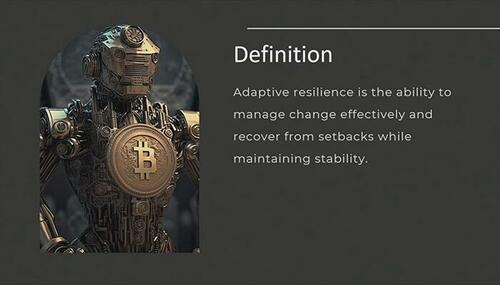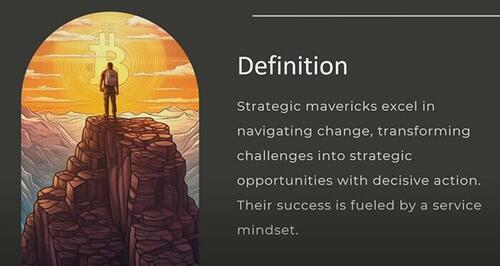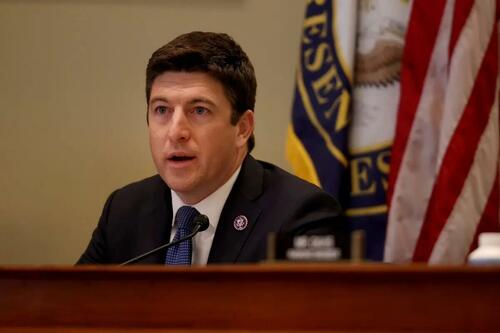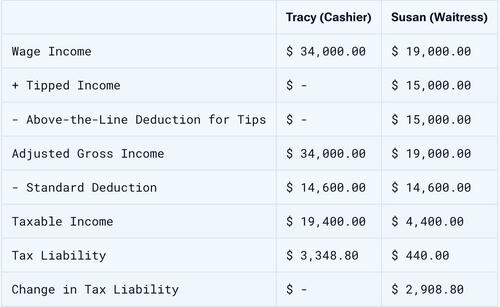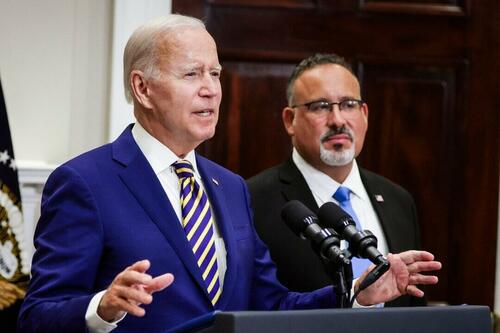Authored by Edward Curtin via Off-Guardioan.org,
To hell with the truth! As the history of the world proves, the truth has no bearing on anything. It’s irrelevant and immaterial, as the lawyers say. The lie of a pipe dream is what gives life to the whole misbegotten mad lot of us, drunk or sober.”
– Eugene O’Neill, The Iceman Cometh
Voters in the USA live in fantasy and probably always will. No matter how obvious it is that the U.S. is an oligarchy, not a democracy, the ardent pipe dreams of a new face in the White House go to their heads every four years.
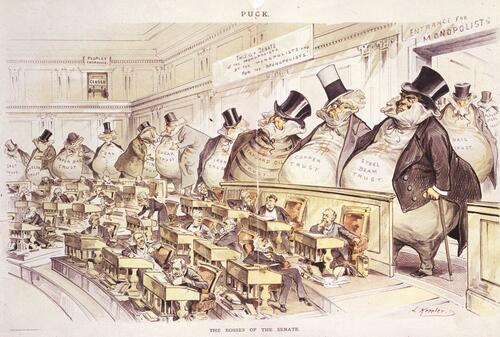
It can only be explained by a combination of intellectual ignorance, the acceptance of propaganda, and the embrace of illusions.
An analogy is apropos. In the small town and vicinity where I live, there are about 10 pot shops where pipe dreams are dispensed. As The Platters sang long ago, “when your heart’s on fire, you must realize smoke gets in your eyes.” But few realize it.
Smoke? What smoke?
Quadrennially, this love affair with the presidential candidates burns hot and heavy despite their records, as if they were heart throbs of stage and screen, straight from Broadway or Hollywood deeply concerned for the public’s welfare.
Americans love actors, and the presidential candidates are of course actors, following the directions of the fat cats who produce their shows. As the grand opening of election day approaches, the supine public is aroused to a fanatical frenzy of excitement from its years’-long sleep by a mass media that spews out drivel to deceive. It could be said that what the media propagandists digest, the public eats.
Smoke and mirrors never fail as the electorate’s favorite billionaire-backed candidates – at this point in 2024 Trump and Kamala Harris (but don’t count on it) – spew lie after lie and the mass media faithfully promote the show as if it were an actual contest between good and evil, a grand movie. The acting is terrible, but the audience is so inflamed they can’t tell.
“There are unconscious actors among them and involuntary actors; the genuine are always rare, especially genuine actors,” Friedrich Nietzsche told us long ago, alluding to far more than this crude political masquerade – to life itself – urging us to take a deep look at the games we play and love in our politicians because they confirm our illusions.
In the 2020 election between Joseph Biden and Donald Trump, more than 158 million ballots were cast, a record number that was two-thirds of estimated eligible voters. That was about seven percentage points higher than in 2016 when Trump and Hillary Clinton faced off. Each election was supposed to be the most important in “your lifetime.”
And as everyone knows, the country has gotten more prosperous, healthier and happier, and the world more peaceful, in those eight years of Republican and Democratic rule.
One can expect more of the same smoke this year as the excitement, titillation, and political lies build to a November 4th crescendo. Illusions die hard, or to be more accurate – they do not die.
The Spectacle rolls on.
Although it might sound uppity, unless people read books that explain how the political and economic system is constructed and how it operates, they have no hope of understanding why the presidential elections are musical chairs played to the tune of Yankee Doodle Dandy. Podcasts and talks can be instructive when true, but they don’t stick like words on a page in a book that you have noted and can refer back to.
But the vast majority of people will not read such books because many can’t read or are too lazy or distracted to take the time to switch off digital media and the mainstream corporate press. It is only through slow meditative reading and study of the great analytic books about social structure, propaganda, history, capitalism, and political economy that a person can truly grasp the nature of the power elite’s domination of the US government, the mass media, and the White House.
A soupçon of differences between contestants for the presidency – superficial makeup – is enough to have those caught in the spectacle get worked up into a hot lather of excitement for candidates chosen by the billionaires. It is an aspect of the mania for celebrity culture.
One cannot simply imbibe the daily mass media, listen to talking heads, or read books recommended and promoted by The New York Times or some prize committee such as the Booker or Pulitzer prizes. (see the NYT’s Best Sellers here – as if #5 could be as “best” as #1).
It is no secret that the reading public has been shrinking for years as literacy has waned dramatically. This is not an accident as the internet, cell phones, and the online life have been pushed by the authorities at every level, including throughout the school system. (I am not arguing that the voters saw through the electoral charade in the past because the level of cultural literacy was higher.)
Today, a walk into any local library throughout the country will confirm the sad state of what even those who read books are reading. The new fiction shelves are filled with books with candy-colored sensationalized covers that evoke bodice-ripping books of old now updated to sound more serious by telling stories of orphans on European trains during WW II, mysterious murders, separated twins, equally evil Nazis and Russians on the prowl, childhood trauma, unfaithful men, etc. All seemingly NY Times bestsellers, together with the “non-fiction” books within which you would search a long time on the shelves to find a radical critique of the American political system and its propaganda arms.
This issue of voting and literacy is connected to another key matter. The American public as a whole does not much care to follow foreign policy and military issues. That is an understatement. Once the military draft was ended in January 1973, the public lost interest in who was being killed in America’s wars. Let foreigners be damned was the unspoken assumption. It was a stroke of genius by the military-industrial-political complex, for politics has always been about what’s in it for us, and when the military is voluntary and Americans are dying in smaller numbers, people are indifferent to the killing.
When it comes to politics, the public’s focus is primarily on domestic issues, the economy, health care, taxes, etc., despite the fact that the entire economy is dependent on war and preparations for war and the U.S. has been at war continually for decades. The U.S spends nearly $900 billion dollars annually on “defense” spending; this is more than China, Russia, India, Saudi Arabia, the U.K., Germany, France, South Korea, and Japan combined.
As everyone knows:
The U.S. is defending itself in Syria where its troops illegally occupy the oilfields in the northeast.
It is defending itself helping Israel slaughter Palestinians and supporting an expanded Middle Eastern war.
It is defending itself by attacking Russia via Ukraine and leading the world to nuclear war.
It is defending itself by provoking China in the South China Sea.
It is defending itself all over the world with special forces and military bases everywhere because everyone is out to get us.
It is defending itself always far, far away from its own shores.
Everyone knows that’s how it goes.
But facetiousness aside, the voting public either doesn’t know or doesn’t care that the U.S.A. is a warfare state; it’s as simple as that. Without waging wars, the U.S. economy, as presently constituted, would collapse. It is an economy based on fantasy and fake money with a national debt over 35 trillion dollars that will never be repaid. That’s another illusion. But I am speaking of pipe dreams, am I not? And whether they choose to be aware of it or not, the vast majority of Americans support this killing machine by their indifference and ignorance of its ramifications throughout the society and more importantly, its effects in death and destruction on the rest of the world. But that’s how it goes as their focus is on the masked faces that face each other on the stage of the masquerade ball every four years.
This charade is comical but accepted by so many, and as the Halloween season in a presidential election year in the USA approaches, it becomes most clear. It’s always a trick until four years elapses and the next poisoned candy treat is offered.
Get to the polls. Your life depends on it!
But there is a big price to be paid – a lesson always too late for the learning – for going to the masquerade ball. Yet when smoke gets in your eyes…ah, such an exciting time it is!
“Do you not know there comes a midnight hour when everyone has to throw off his mask?” warned Søren Kierkegaard.
“Do you believe that life will always let itself be mocked?
Do you think you can slip away a little before midnight in order to avoid this?
Or are you not terrified by it?”




